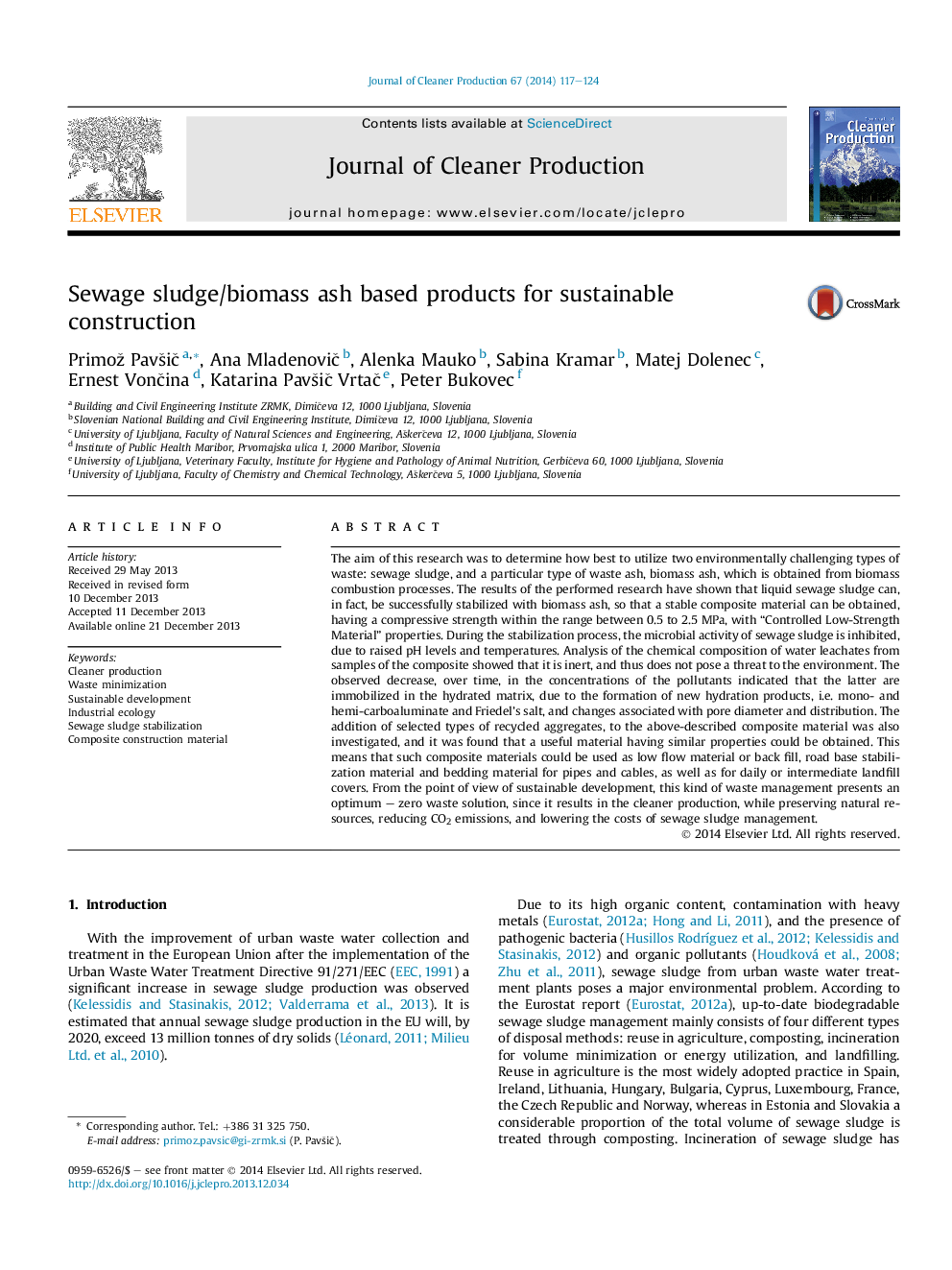| Article ID | Journal | Published Year | Pages | File Type |
|---|---|---|---|---|
| 1744947 | Journal of Cleaner Production | 2014 | 8 Pages |
•Novel composites made of sewage sludge and biomass ash were studied.•They can be used for specific purposes in construction.•The environmental acceptability of the composites was demonstrated.•A cleaner – zero waste solution for sewage sludge and biomass ash is achieved.
The aim of this research was to determine how best to utilize two environmentally challenging types of waste: sewage sludge, and a particular type of waste ash, biomass ash, which is obtained from biomass combustion processes. The results of the performed research have shown that liquid sewage sludge can, in fact, be successfully stabilized with biomass ash, so that a stable composite material can be obtained, having a compressive strength within the range between 0.5 to 2.5 MPa, with “Controlled Low-Strength Material” properties. During the stabilization process, the microbial activity of sewage sludge is inhibited, due to raised pH levels and temperatures. Analysis of the chemical composition of water leachates from samples of the composite showed that it is inert, and thus does not pose a threat to the environment. The observed decrease, over time, in the concentrations of the pollutants indicated that the latter are immobilized in the hydrated matrix, due to the formation of new hydration products, i.e. mono- and hemi-carboaluminate and Friedel's salt, and changes associated with pore diameter and distribution. The addition of selected types of recycled aggregates, to the above-described composite material was also investigated, and it was found that a useful material having similar properties could be obtained. This means that such composite materials could be used as low flow material or back fill, road base stabilization material and bedding material for pipes and cables, as well as for daily or intermediate landfill covers. From the point of view of sustainable development, this kind of waste management presents an optimum – zero waste solution, since it results in the cleaner production, while preserving natural resources, reducing CO2 emissions, and lowering the costs of sewage sludge management.
